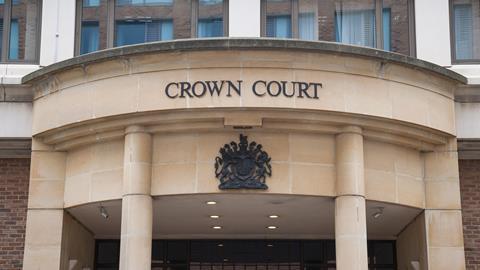Cases where the defendant is likely to plead guilty should be brought forward to help clear the Crown court backlog, the senior presiding judge has suggested.
The Crown court backlog has been steadily rising since April, when the criminal began their action over legal aid funding. Figures published by HM Courts & Tribunals Service last week show the backlog stood at 61,212 in August.
Addressing the Criminal Law Solicitors Association Conference last Friday, Lord Justice Edis suggested ‘bringing cases forward which are going to plead guilty later on and making them plead sooner’.
Edis said the current remuneration system 'may not necessarily be the best for encouraging that kind of outcome from your point of view. It might need adjustment for that reason.’ However, the backlog was at its highest level and bigger than it was at the height of the pandemic.
‘Getting through that backlog is going to be a real problem. I do not think we are going to be able to sort it out on Monday. We have got a problem for the next few weeks. One that will assist would be to get dialogue between solicitors, barristers, list officers and resident judges, so you can identify cases of yours where they will plead guilty. Where you think, if it was listed, it would probably plead, talk to the list officer and they should be saying “OK we will list it”. If you have got two, three or four of these cases… you can see how that works.
‘This is a way of processing cases. I’m not saying more cases ought to crack than they would today. Those which are going to crack anyway and should crack – let’s get cracking. Everyone’s happy, you have done the case and put the bill in, the client has been dealt with appropriately and gets more credit.’
On court capacity, Edis said: ‘If you have a vintage year, you might be able to sit 105,000 sitting days in a calendar year. That’s using all the courts as well as you can at about 85% usage rate. That assumes you have a judge in every court and you have an advocate on all sides of every case. These assumptions are of course false. They are not assumptions you can correct quickly because judges do not grow on trees… What we can do is appoint more recorders.’
Edis said the Judicial Appointments Commission was committed to fair treatment but the number of solicitors compared to barristers was ‘not particularly pretty’.
As well as speaking to someone who knows about the application process, Edis advised solicitors considering a judicial career to spend ‘serious time’ on their application. Many applications failed to make it through the sift stage because they were ‘dashed off between trials by busy applicants’.
This article is now closed for comment.




























6 Readers' comments